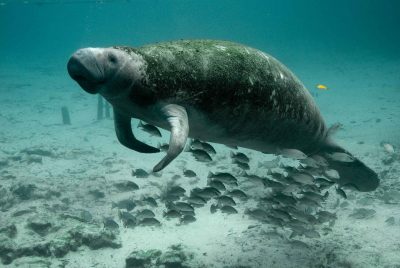Federal Appeals Court Allows US Military Base Construction in Okinawa Despite Environmental Concerns

A federal appeals court ruled Wednesday that the US military can construct a base in Okinawa, Japan, despite environmental activists’ concerns over the base’s construction threatening the local dugong population. The activists filed suit under the National Historic Preservation Act (NHPA).
A panel of federal judges heard the case. The panel concluded that the base’s construction would not ultimately threaten the dugong population:
The panel held that the Department’s finding that its proposed action would have no adverse effect on the dugong was not arbitrary or capricious under Section 706 of the Administrative Procedure Act. … Specifically, the panel held that substantial evidence supported the Department’s conclusion that the presence of the dugong in the area on the new base was sporadic, even if it did not possess more robust baseline population data; and the Department reasonably concluded that there would be no adverse effects on the dugong as a result of the new base. The panel further held that the Department was not unreasonable when it failed to consider population fragmentation, disruption of travel routes, and loss of habitat required to sustain the population, in evaluating the impacts of the new base on the dugong. The panel also held that the Department rationally concluded that the construction and operation of the new base would not adversely impact the dugong population, and would have no adverse effect on the dugong’s cultural significance.
Under the NHPA, the government entity must take into account the affects of its construction. Contrary to the court’s decision, environmental activists claimed that the US Department of Defense failed to adequately consult local entities required and rationally base its determination on available evidence.
Specifically, the activists wanted the Department of Defense to consult their organizations for information. The court found that the Department of Defense’s consultation of the Japanese local government, review of studies, and conducting of new anthropological studies sufficed for consultation and rational determination requirements.
*
Note to readers: please click the share buttons above or below. Forward this article to your email lists. Crosspost on your blog site, internet forums. etc.
Featured image is from Pixabay

